Storm Darragh causes chaos across UK as 96mph winds leave two dead and hundreds of thousands without power
Flights and trains cancelled across the country after Met Office issued rare red warning for powerful winds and heavy rain
Storm Darragh wreaked havoc across the UK on Saturday, with two people killed, flights and trains cancelled and hundreds of thousands of homes left without power.
Winds of up to 96mph battered the country as the fourth named storm of the season caused major disruption, particularly in south Wales and western England, with the threat of more to come on Sunday.
A rare Met Office red warning for parts of Wales and southwest England came into effect on Saturday morning at 1am, with the powerful winds resulting in a government “risk to life” alert issued to three million people. It was the largest use of the system yet, with people urged to avoid driving and to “stay indoors if you can”.
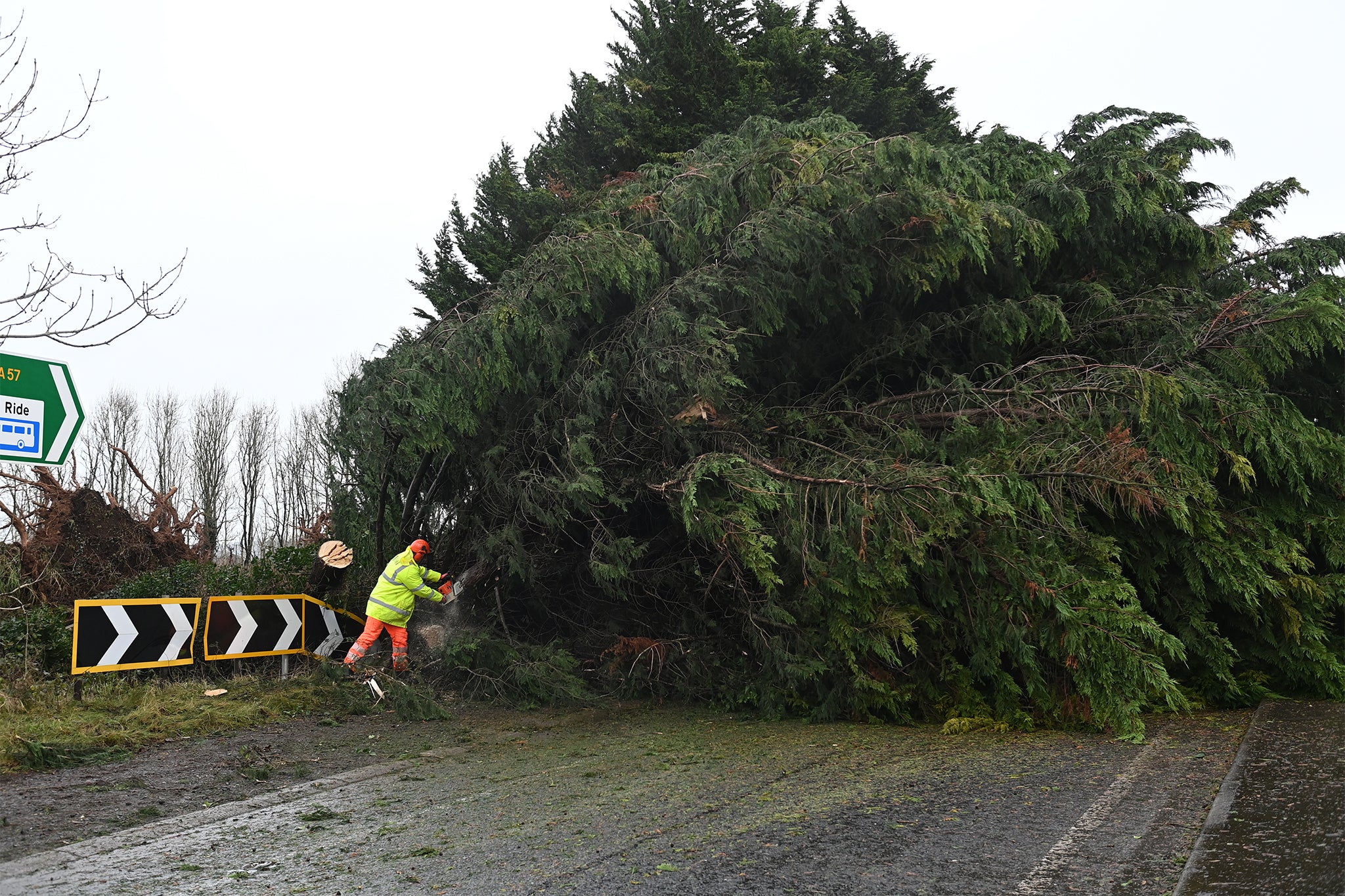
British Airways cancelled more than 100 short-haul domestic and European flights from London Heathrow, including multiple flights to and from Paris, Edinburgh, Jersey, Milan, Nice and Vienna, while transatlantic flights from the US were diverted to Brussels.
A major incident was declared by Dyfed-Powys Police in Wales on Saturday evening, with the force receiving a huge number of calls about fallen trees and poor driving conditions. The storm also affected other parts of the country. In Longton, near Preston, a man in his forties died after a tree fell onto his van on the A59 dual carriageway in Lancashire.
For live updates on Storm Darragh - visit our blog by clicking here
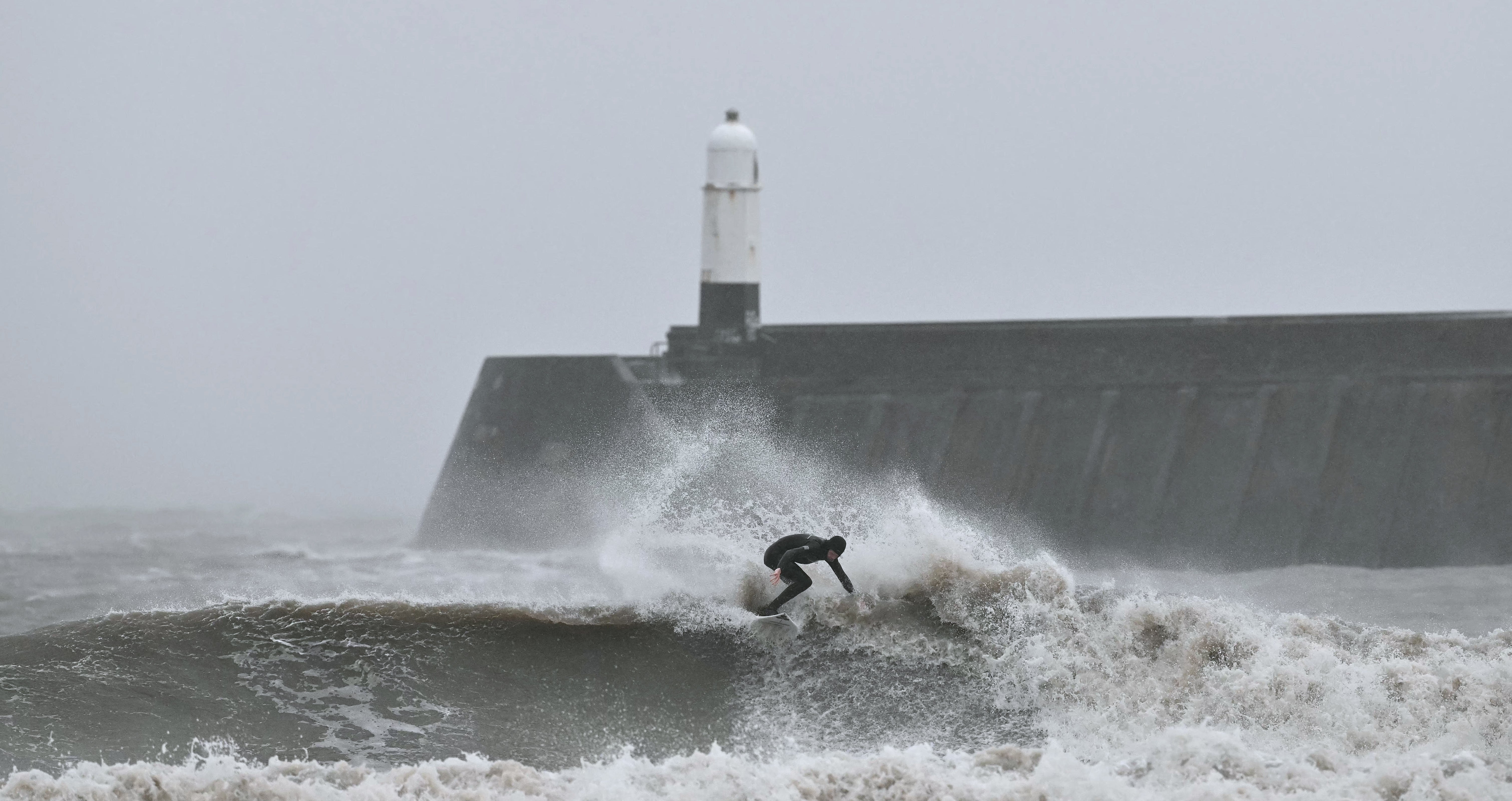
A dog walker who was first to the scene told The Independent how locals tried to push the tree off the van. Terry Tinker said: “I’ve got a peg leg and a walking stick so I couldn’t do much to help. It was horrible.” The victim’s next of kin have been informed and are being supported by a specially trained officer.
Six hours after the death, a second man died in the storm when a tree fell on his car in Silver Birch Road in Erdington, shortly after 3pm. Sgt Benjamin Parsons said: “Our thoughts are with the man’s family at this time, and his next of kin have been informed.”
Sporting events including the Aldershot races were cancelled, and the keenly awaited final league derby at Goodison Park between Everton and Liverpool was postponed due to powerful gales and heavy downpours. All the Royal Parks closed, including their cafes, kiosks, park roads and cycleways, so London’s Winter Wonderland was one of a number of Christmas-themed attractions that stayed shut.
Hundreds of thousands of people in Northern Ireland, England and Wales were left without power.
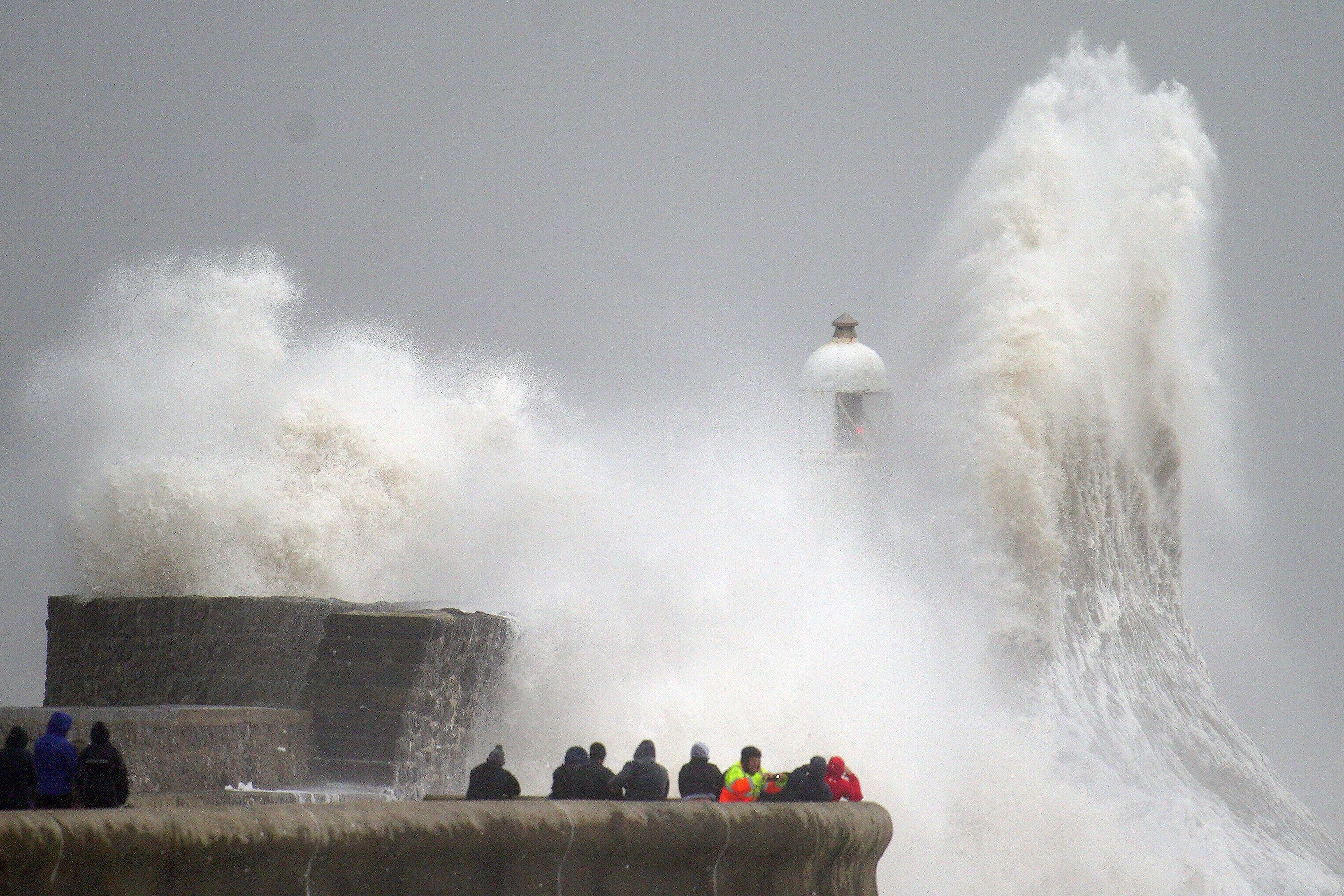
The Energy Networks Association said 259,000 homes in England, Scotland and Wales were without power on Saturday evening. A spokesperson said around 768,000 customers had been reconnected on Saturday, with more than 1,000 engineers ready to be deployed. A further 395,000 homes were left without power in Ireland, which bore the initial brunt of the storm.
The Cabinet Office’s emergency alert system sent a message to every compatible mobile phone in the impacted areas, containing information about the red warning and guidance on how to stay safe. Mobile phones made a loud siren-like sound even if they were set on silent, with the sound and vibration lasting for about 10 seconds, although some people said they had not received it.
Ahead of the downpours, the Met Office said periods of heavy rain in south and mid-Wales through Saturday are likely to bring 20-30mm rainfall in three to six hours. Totals of 80-90mm are possible by the evening, which would mean about two weeks’ worth of rain in one day. The Met Office said 55mm of rain fell in parts of Cumbria since Friday afternoon, while 44mm was seen in south Wales. As of Saturday evening, the Environment Agency had 144 flood alerts and 28 flood warnings in place across the country.
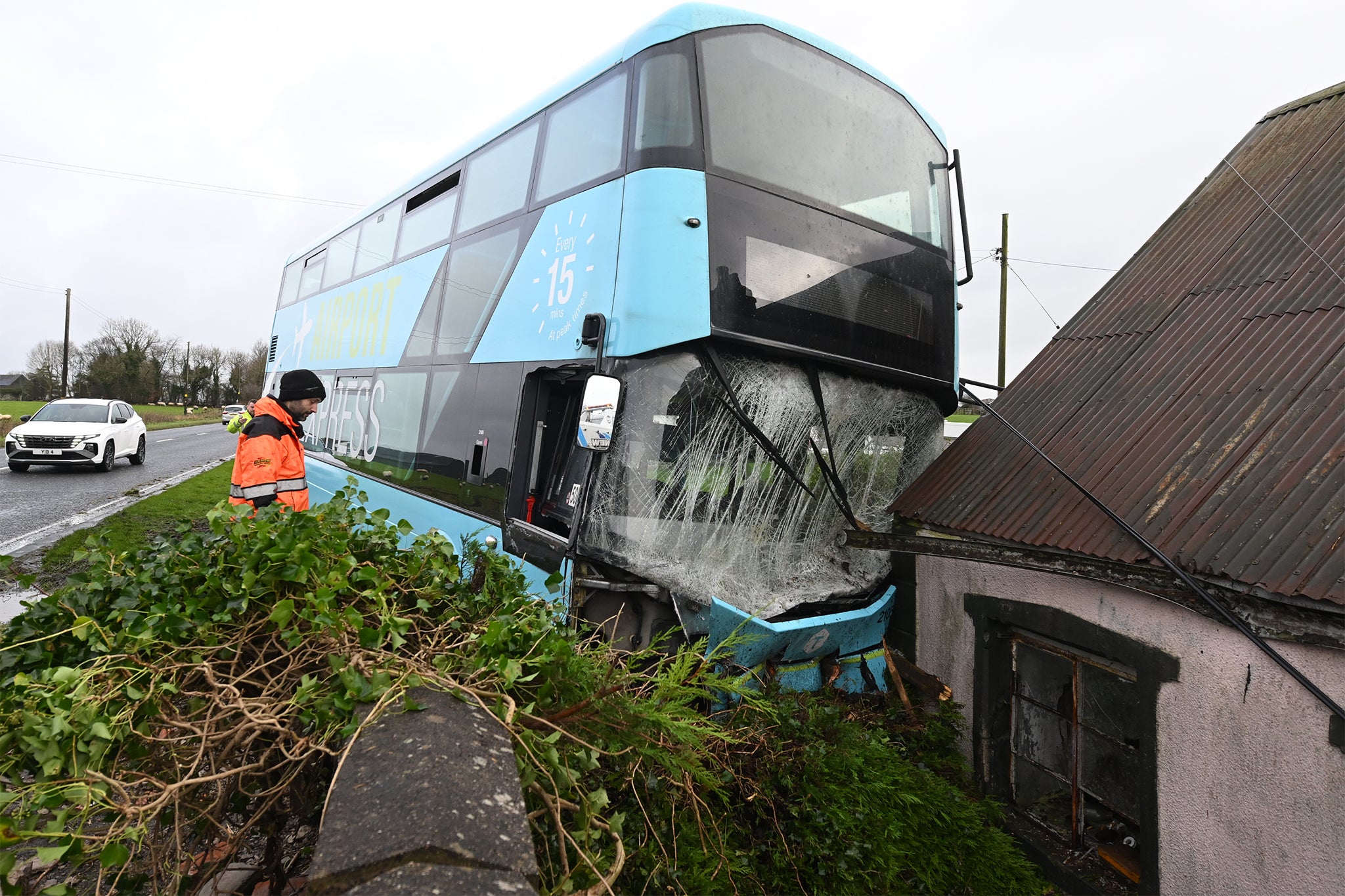
National Rail said the storm was likely to affect services across the whole network over the weekend and warned people to check their journey in full before travelling, as conditions may mean the last services of the day are cancelled.
With further yellow wind warnings in place across much of the UK, including London and the South East, on Sunday, Britons were already counting the cost of the damage from Darragh. Strong winds ripped up Llandudno Pier in North Wales, damaged roofs of businesses along the Bristol Channel and brought down trees in residential areas in Wales.
Paul Williams, general manager of Llandudno Pier, said it may cost £250,000 to repair. He said: “Overnight one of the kiosks, one of the original ones which is roughly 148 years old, was ripped up.
“It’s the first time in its history that it has been tipped to one side,” he continued. “The ice cream stand at the end of the pier has been ripped up and it went into the sea and there are about a thousand pieces washed up on the other side of the bay. The roof has come off the toilet and there’s real fear that we’ll potentially lose the bar and cafe down the end as well.”
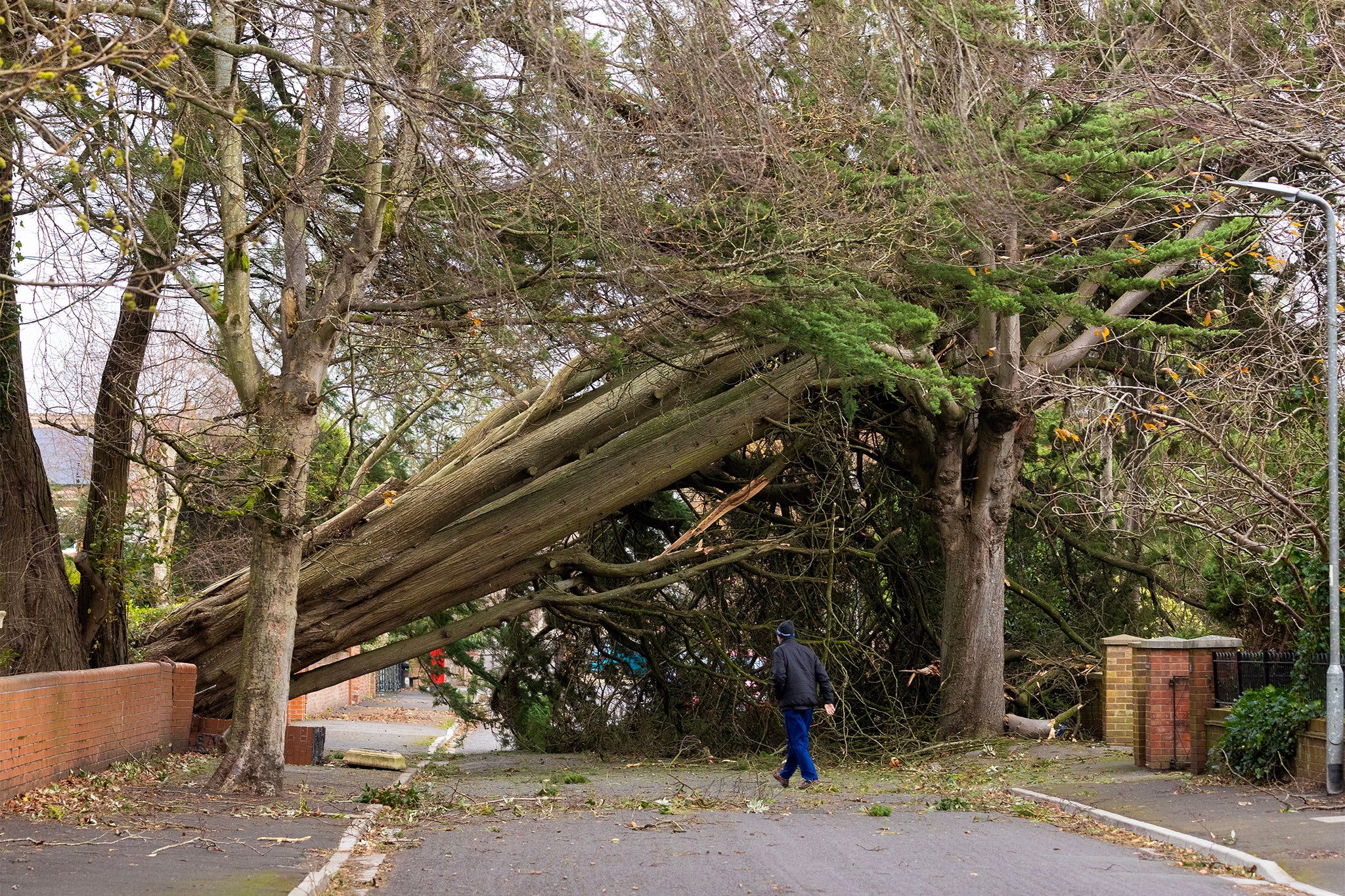
Professor Andrew Charlton-Perez, meteorologist and head of the School of Mathematical Physical and Computational Sciences at the University of Reading, hailed the UK’s forecasters for preventing more deaths. He said: “Storm Darragh was well forecast, and that combined with the clearly communicated warnings seems to have provided the public with the information they needed to make good decisions to avoid harm.
“This storm is a reminder that the UK is very fortunate to have one of the most effective public weather services in the world. This should spur us on to help deliver on the UN’s commitment to develop early warnings for all, and provide similar lifesaving warnings for people wherever they live in the world, whether in Lilongwe or Llandudno.”
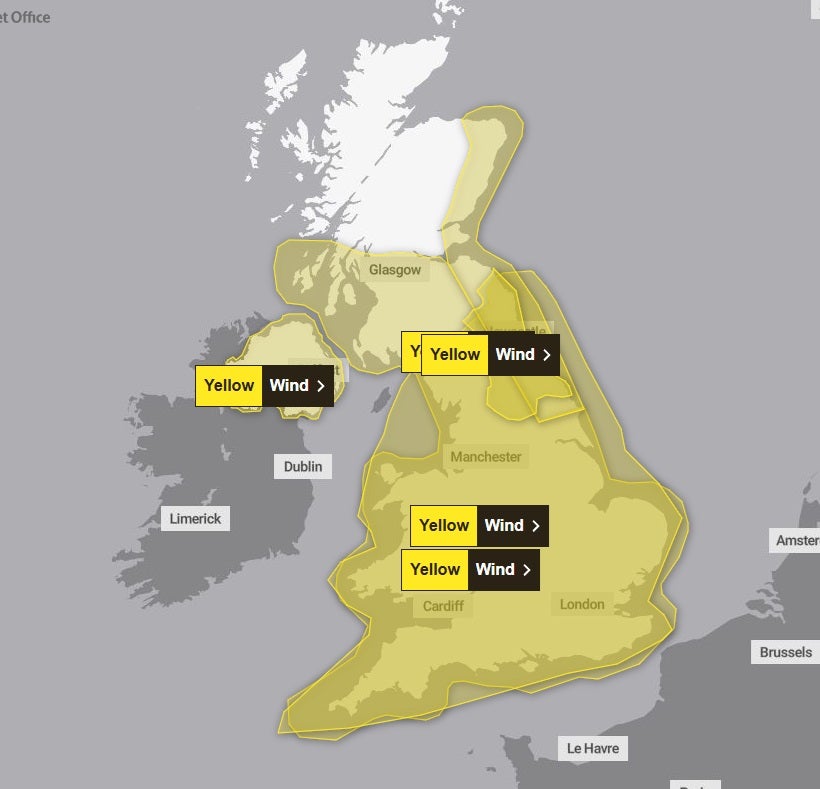
The Met Office issued the red weather warning – the most serious type – on Friday for wind, meaning dangerous weather was expected and people were urged to take action to keep themselves and others safe. The now-expired warning was in place from 3am to 11am on Saturday.
On Sunday, gusts of up to 80mph could hit Northern Ireland until 6am before a fresh yellow Met Office wind warning comes into force across much of England and Wales.
Join our commenting forum
Join thought-provoking conversations, follow other Independent readers and see their replies
Comments
Bookmark popover
Removed from bookmarks